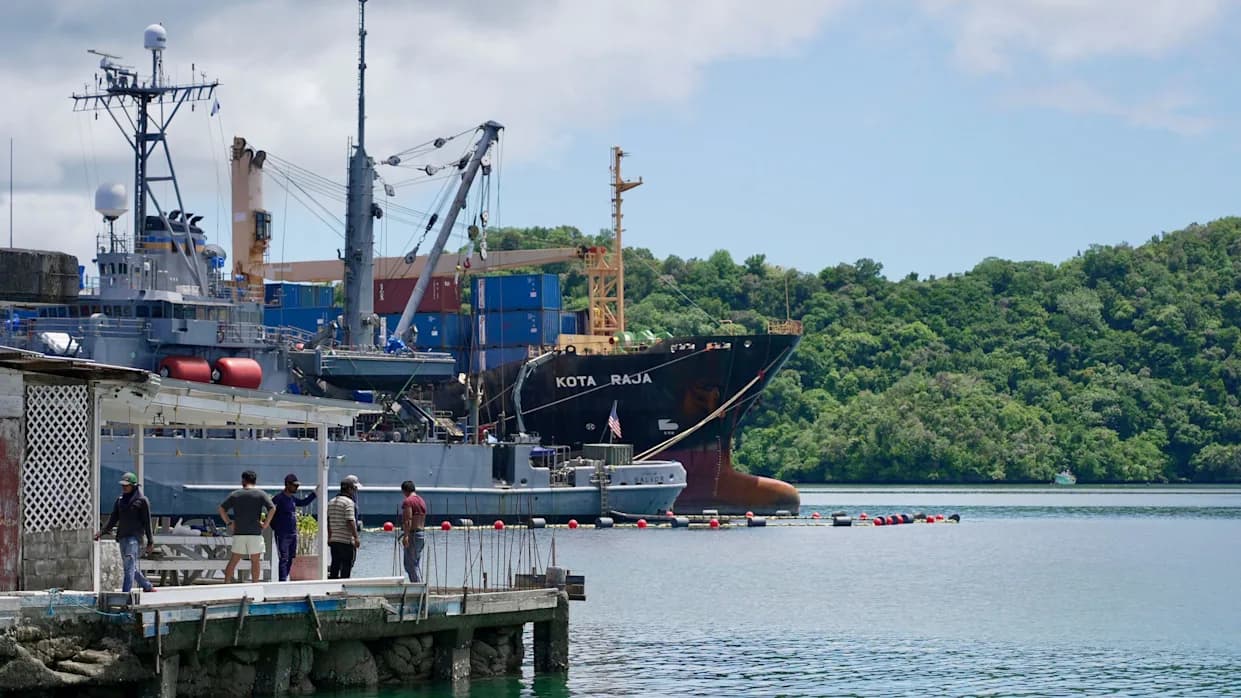We're loading the full news article for you. This includes the article content, images, author information, and related articles.
As the Pacific nation of Palau faces economic pressure from Beijing for its ties to Taiwan, its strategic alliance with Washington deepens, highlighting a geopolitical struggle with clear implications for Kenya's own foreign policy.

In the Western Pacific, the island nation of Palau finds itself at the epicentre of a superpower struggle, facing economic coercion from the People's Republic of China (PRC) for its diplomatic recognition of Taiwan while deepening its security ties with the United States. This high-stakes geopolitical drama, unfolding thousands of kilometres away, offers a stark case study for nations like Kenya, which navigates its own relationship with Beijing and formally adheres to the 'One China' policy.
Palau, a nation of about 18,000 people, is one of only 12 countries worldwide that maintain formal diplomatic relations with Taiwan, which Beijing considers a breakaway province. This stance directly challenges the PRC's 'One China Principle,' a cornerstone of its foreign policy asserting that there is only one sovereign China under its governance. In response, Beijing has employed significant economic leverage. In 2017, the Chinese government reportedly ordered its tour operators to cease selling holiday packages to Palau, which had become heavily reliant on Chinese visitors. Tourist arrivals from China plummeted; having skyrocketed from just 634 in 2008 to 91,000 in 2015 (representing 54% of all visitors), the numbers collapsed following the ban, severely impacting Palau's tourism-dependent economy, which constituted about 40% of its GDP pre-pandemic.
Palauan President Surangel Whipps Jr. has publicly accused Beijing of weaponizing tourism and offering economic inducements to sever ties with Taipei. In a February 2024 letter to a U.S. senator, Whipps revealed that the PRC had offered to "fill every hotel room" and provide $20 million annually for a 'call center' in exchange for switching its allegiance to Beijing. Despite the economic pressure, Palau has stood firm. "We will not denounce our best friend," Whipps stated in May 2024, referring to Taiwan.
Palau's steadfastness is bolstered by its critical strategic relationship with the United States. The nation is a key part of the 'Second Island Chain,' a series of territories the U.S. views as vital to containing potential Chinese military expansion in the Pacific. This strategic value has led to a significant American military build-up on the island.
Under the Compact of Free Association (COFA), a multi-decade agreement, the U.S. retains full authority and responsibility for Palau's defense and security. This agreement, renewed in May 2023 for another 20 years with a commitment of $889 million in U.S. assistance, allows Palauan citizens visa-free access to live and work in the U.S. and serve in its military. In return, the U.S. gains exclusive military access to Palau's strategic waters and airspace.
A central element of this deepening military alliance is the construction of a Tactical Mobile Over-the-Horizon Radar (TACMOR) system. The U.S. Department of Defense awarded a contract in December 2022 for the facility, which is expected to be completed by 2026. The radar system, with sites on the islands of Babeldaob and Angaur, is designed to provide early warning and enhance air and maritime domain awareness over a vast area of the Western Pacific, a capability seen as crucial for monitoring Chinese military movements.
Concurrent with U.S. military expansion, there has been a notable increase in long-term land leases by Chinese nationals and businesses in Palau, some in strategically sensitive locations near U.S. military sites. While foreigners cannot buy land, they can secure leases for up to 99 years. A U.S.-funded study highlighted investments from the Cambodia-based Prince Group, linked to Chinese criminal enterprises, totaling an estimated $1 billion in proposed resort and hotel projects. U.S. officials have expressed concern that these land acquisitions are not coincidental and could be part of a broader strategy to gain leverage and monitor U.S. activities. President Whipps has also repeatedly accused China of flouting its maritime borders, with Chinese research vessels entering Palau's exclusive economic zone uninvited.
While the geopolitical contest in the Pacific may seem distant, it underscores the complexities of navigating relations with global powers. Kenya, like most of the world, officially adheres to the 'One China' policy, a position it has consistently and recently reaffirmed. In January and November 2024, top Kenyan diplomats, including Prime Cabinet Secretary Musalia Mudavadi and Foreign Affairs Principal Secretary Korir Sing'oei, reiterated Kenya's unwavering commitment, stating that Taiwan does not meet the threshold for recognition as a sovereign state. This stance has been crucial in fostering a strong partnership with Beijing, which has become a major trading and development partner, funding significant infrastructure projects like the Standard Gauge Railway.
Palau's experience demonstrates the intense pressure and economic consequences faced by nations that defy Beijing's position on Taiwan. It highlights the strategic choice countries must make between economic partnership with the world's second-largest economy and alignment with the U.S.-led security order. For Kenya, Palau's predicament serves as a powerful reminder of the diplomatic and economic stakes involved in its own foreign policy calculations and its commitment to the 'One China' framework amid escalating global competition.
Keep the conversation in one place—threads here stay linked to the story and in the forums.
Sign in to start a discussion
Start a conversation about this story and keep it linked here.
Other hot threads
E-sports and Gaming Community in Kenya
Active 9 months ago
The Role of Technology in Modern Agriculture (AgriTech)
Active 9 months ago
Popular Recreational Activities Across Counties
Active 9 months ago
Investing in Youth Sports Development Programs
Active 9 months ago